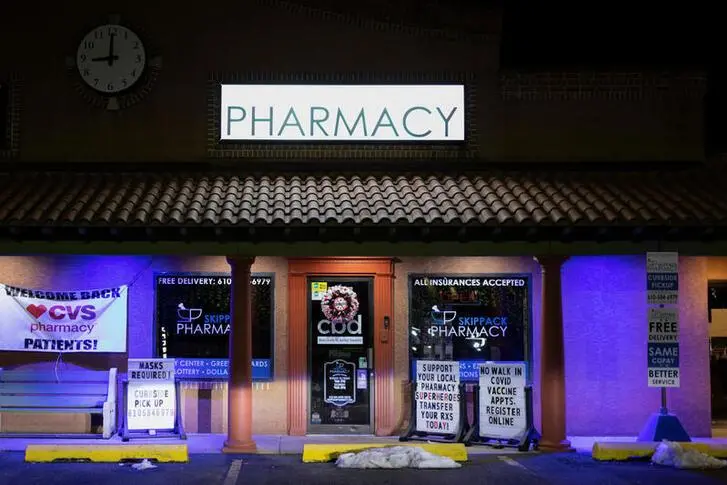PHOTO
Pharmacies across the United States are weighing whether to sell mifepristone, a pill used in medication abortions, following the Food and Drug Administration's announcement earlier this week that they can now do so.
What they decide is primarily based on where they are located given that almost half the states ban or restrict abortion after the Supreme Court overturned its landmark Roe v Wade ruling, though some pharmacists told Reuters the local culture and attitudes or their own personal beliefs on abortion is what guides them.
The FDA rule will make medication abortion, which accounts for more than half of U.S. abortions, more accessible in states where abortion remains legal, but its impact on pharmacies in the states that have banned abortion remains to be seen.
Bill Patel, who has owned Care Rite Pharmacy in Marianna, Florida, for five years, said he would not seek out certification to dispense mifepristone at his pharmacy because he is personally opposed to abortion. The pharmacy is located near Florida's borders with Georgia and Alabama, where abortion is severely restricted.
He said he would only do it if asked by the health department. "I just oppose it to be honest with you," he said. "I'm against abortion."
Florida currently bans abortion after 15 weeks and has several other restrictions.
National pharmacy chain giants Walgreens Boot Alliance Inc and CVS Health Corp have said they plan to offer mifepristone in states where it is allowed. Other national and regional chains including Southeastern Grocers Inc, which owns Winn-Dixie stores, said they are still considering if they will offer it and where.
A spokesperson for GenBioPro, one of two companies that make mifepristone in the United States, said the drugmaker has already started to receive applications for certification but did not provide further details.
Michelle Vargas, owner of independent Lamar Family Pharmacy in Lamar, South Carolina, said she is not considering dispensing it.
"We're in a very small rural area. We're not near an abortion clinic or in a larger city where that happens more," she said. "That's just not something we see here."
Legal questions are swirling around the prospects of a drug with FDA approval being made illegal under state law in some parts of the country.
With the legal issue unsettled, pharmacies in states restricting abortion are likely to face legal risks and could lose their licenses if they decide to sell mifepristone in violation of state laws, said American Pharmacist Association interim CEO Ilisa Bernstein, who worked at the FDA for 30 years.
Other factors, such as safety for pharmacies and pharmacists, are also at play, said Bernstein.
Steve Moore, pharmacist and owner of Condo Pharmacy in Plattsburgh, New York, a state where abortion is legal, plans to dispense the drug.
"As far as my role as a pharmacist, I feel it's to help people safely and effectively use the medications," said Moore. "I'm not in the role of limiting access to medication."
"We've had patients give us a hard time for dispensing the morning after pill or birth control. That's certainly your prerogative. But if that's a concern, then we're not the pharmacy for you, because we're certainly not going to stop doing that," he said.
(Reporting by Ahmed Aboulenein and Gabriella Borter in Washington, Michael Erman in New York; Editing by Caroline Humer and Lisa Shumaker)





















